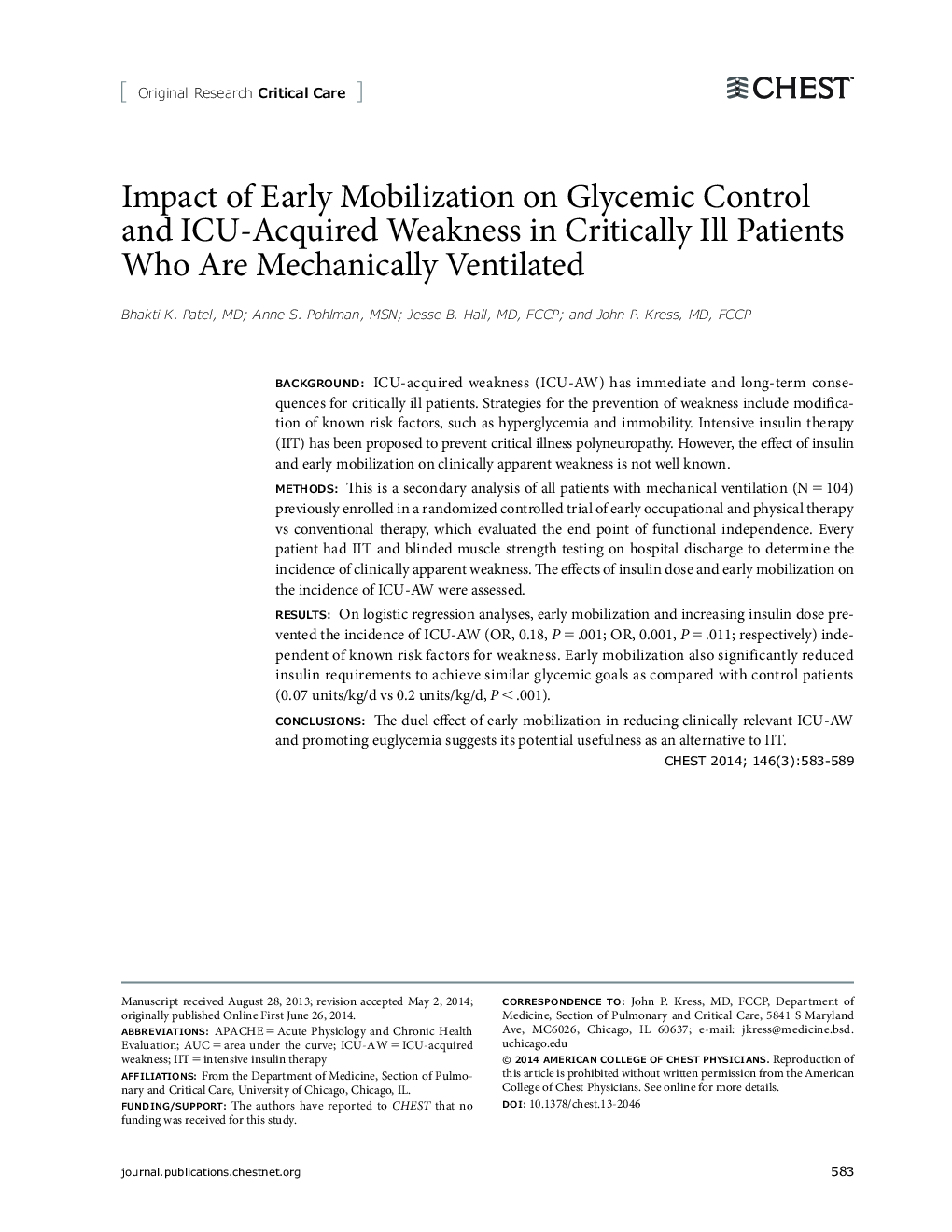| Article ID | Journal | Published Year | Pages | File Type |
|---|---|---|---|---|
| 2899825 | Chest | 2014 | 7 Pages |
BACKGROUNDICU-acquired weakness (ICU-AW) has immediate and long-term consequences for critically ill patients. Strategies for the prevention of weakness include modification of known risk factors, such as hyperglycemia and immobility. Intensive insulin therapy (IIT) has been proposed to prevent critical illness polyneuropathy. However, the effect of insulin and early mobilization on clinically apparent weakness is not well known.METHODSThis is a secondary analysis of all patients with mechanical ventilation (N = 104) previously enrolled in a randomized controlled trial of early occupational and physical therapy vs conventional therapy, which evaluated the end point of functional independence. Every patient had IIT and blinded muscle strength testing on hospital discharge to determine the incidence of clinically apparent weakness. The effects of insulin dose and early mobilization on the incidence of ICU-AW were assessed.RESULTSOn logistic regression analyses, early mobilization and increasing insulin dose prevented the incidence of ICU-AW (OR, 0.18,P= .001; OR, 0.001,P= .011; respectively) independent of known risk factors for weakness. Early mobilization also significantly reduced insulin requirements to achieve similar glycemic goals as compared with control patients (0.07 units/kg/d vs 0.2 units/kg/d,P< .001).CONCLUSIONSThe duel effect of early mobilization in reducing clinically relevant ICU-AW and promoting euglycemia suggests its potential usefulness as an alternative to IIT.
